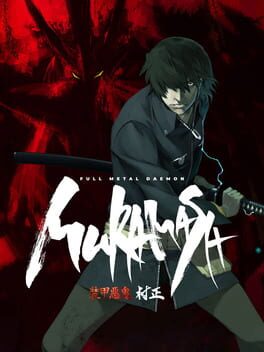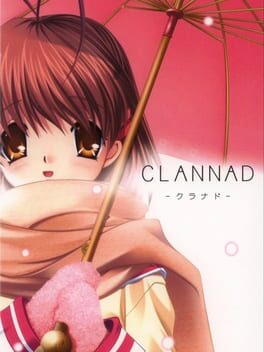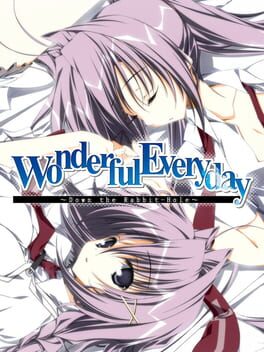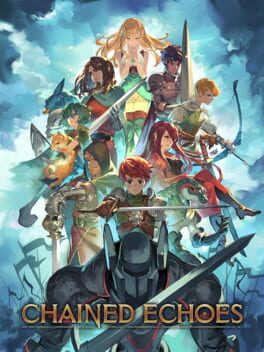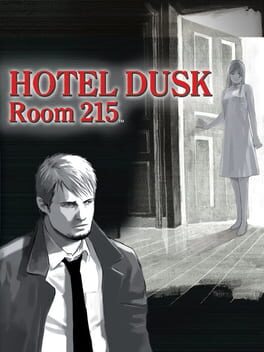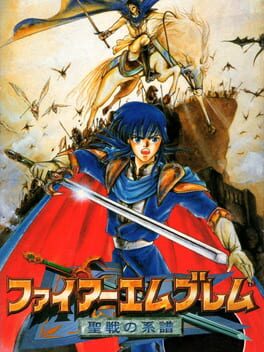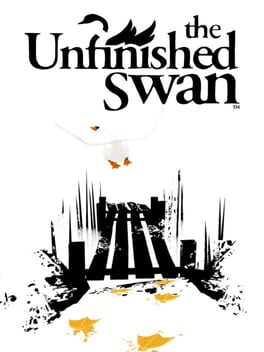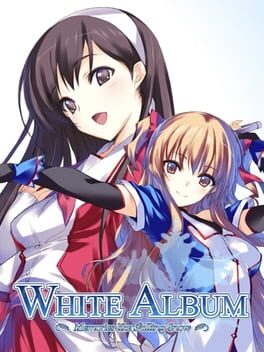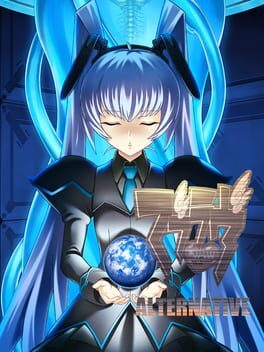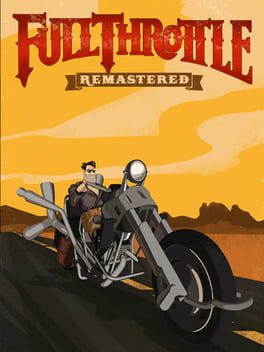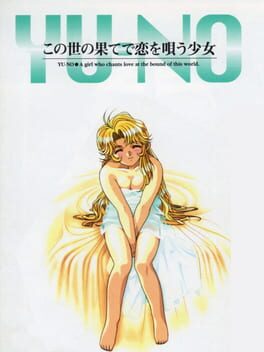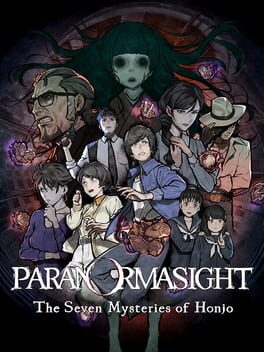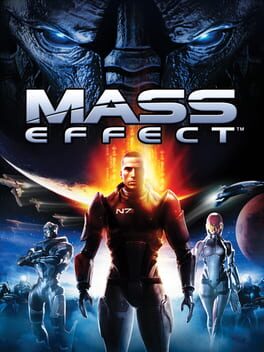mintcake
I've seen people compare it to, and I shit you not, The Brothers Karamazov. They should be exiled straight to Siberia for literature blasphemy.
The main parallel they drew is how this game supposedly allows different moralities to present themselves in equal footing. First of all, the game has one true ending. You know how visual novels work. Among the multiple endings, there is always one that is at the end of the longest, hardest route, and you end up with the most important girl. This game makes it more obvious, with all the other endings being some sort of refute to their own themes, so that you can clearly tell where the writer's heart truly lies. But the real problem is not how even-handed the writer is, but how compelling he presents his final argument. Without going into spoiler, the short answer is logic fallacy. When the game needed cool analysis and rational thinking the most to justify its morality, the writer resorted to appealing to the reader's emotion instead of reason, and in my case, fell flat completely. What is this novel take on morality that the game subjected me 50 hours of pain to get through? It's neither novel nor moral, an excuse used by perpetrators throughout history after committing atrocity.
And then there's the writing. The writer is clearly a kendo fan, if not a kendo course salesman, but that doesn't excuse him for shoving wall of text of kendo tutorial down people's throat. Exciting combat scenarios are grind to a halt by monotone exposition. The only thing more boring than action scenes are the comedy scenes. After all the philosophizing about the morality of man, garbage anime tropes are here to cleanse the palette and remind you nothing here is worth putting too much thoughts into. And how can I forget the sex scenes? They are fascinating in a Titus Andronicus sort of way. Who am I kidding? This is NitroPlus we are talking about. With the writer's fetish on display, I could see his hard on through the screen.
One point for the sudoku puzzle that came out of nowhere.
The main parallel they drew is how this game supposedly allows different moralities to present themselves in equal footing. First of all, the game has one true ending. You know how visual novels work. Among the multiple endings, there is always one that is at the end of the longest, hardest route, and you end up with the most important girl. This game makes it more obvious, with all the other endings being some sort of refute to their own themes, so that you can clearly tell where the writer's heart truly lies. But the real problem is not how even-handed the writer is, but how compelling he presents his final argument. Without going into spoiler, the short answer is logic fallacy. When the game needed cool analysis and rational thinking the most to justify its morality, the writer resorted to appealing to the reader's emotion instead of reason, and in my case, fell flat completely. What is this novel take on morality that the game subjected me 50 hours of pain to get through? It's neither novel nor moral, an excuse used by perpetrators throughout history after committing atrocity.
And then there's the writing. The writer is clearly a kendo fan, if not a kendo course salesman, but that doesn't excuse him for shoving wall of text of kendo tutorial down people's throat. Exciting combat scenarios are grind to a halt by monotone exposition. The only thing more boring than action scenes are the comedy scenes. After all the philosophizing about the morality of man, garbage anime tropes are here to cleanse the palette and remind you nothing here is worth putting too much thoughts into. And how can I forget the sex scenes? They are fascinating in a Titus Andronicus sort of way. Who am I kidding? This is NitroPlus we are talking about. With the writer's fetish on display, I could see his hard on through the screen.
One point for the sudoku puzzle that came out of nowhere.
2004
This is a game for the impressionable. The story is filled with extremely contrived conflicts solved by deus ex machina. The majority of characters do not behave like human beings. A small logic poke into the tear-jerk scenes reveals a complete lack of reason. Art work is stuff from nightmares. Thankfully there're a few routes not written by Maeda Jun that offer a little bit of genuine drama and character development.
This game ultimately crushed my enthusiasm for Japanese visual novels. I had heard so much about its legendary status, and what I got was cheap drama and asinine writing. If you are out of high school and thinking about giving this game a try, I suggest you just pick up a real novel instead.
This game ultimately crushed my enthusiasm for Japanese visual novels. I had heard so much about its legendary status, and what I got was cheap drama and asinine writing. If you are out of high school and thinking about giving this game a try, I suggest you just pick up a real novel instead.
It was a sad thing when the writer decided at the end of chapter three that he had f*cked around for long enough and needed to actually tell a story and make sense of everything. He really didn't have to do that. I was happy to just let the protagonist take me to wherever his volatile mind goes. Instead, I got some plot, and it wasn't too impressive. Behold! Another little sister in a Japanese visual novel!
2022
Too many indie JRPG go for the shorter route while conveniently styling themselves as "Chrono Trigger inspired". This one says "fuck it, I'm going the full nine yards." It's the complete classic 16 bit JRPG package, with proper side quests and post game content and everything. The story is a hodgepodge of JRPG, manga and anime influence cramped into something engaging to the end, with certain events feeling a bit too familiar. Funny enough, another standout indie game from Germany in 2022: Signalis, gives the exact same impression story wise. Gameplay design is an absolute standout. With no random encounter and trash mob, the enemy variety is astounding, and each encounter is a puzzle to be solved. Just when I thought there's nothing more to be done about turn-based JRPG combat, this game came alone and proved me wrong. Writing and translation can be iffy at times, which some might say is a long standing feature of JRPG. I'm sure the writer has good intentions, but illogical world building such as "constant war makes the continent fall behind in technology" only serves to muddle the message.
2007
At first glance, you might think this is a hardboiled detective story featuring a cynical retired cop, but it really isn't. Our protagonist is on a personal quest, seeking the truth behind incidents happened to him prior. By accident or by design, he meets the colorful residents of Hotel Dusk, all of them having something to do with the truth he is seeking. He has exactly one night to figure it out, in a motel where no one is coming or leaving. Indeed, the setup is a classic "insulated mansion in a stormy night" rather than the sprawling metropolis where the hardboiled detectives usually dwell. Thankfully, nobody dies in this game, and the worst thing that could happen to our protagonist is getting kicked out. The detective work here is done mostly by talking to people (with some poorly designed puzzle solving in the mix). There is no gun in this story. The plot meanders quite a bit, with each side character has their own little arch. Sometimes it's not clear what to do next with the event that triggers plot progression seemingly coming out of nowhere.
The only Fire Emblem game where I remember every character's name. Sure they don't have a million lines of support dialogue to specify their favorite food, but what short dialogue there is always captures the essence of them, a videogame writing skill sadly lost after 16 bit generation. The marriage system is first introduced here, but it doesn't indulge in dating sim. What make the characters truly memorable, however, is their role in the main story. They are tied to the main story through their lineage, and what happened in the story impacts them all. And what a story it is. It exudes grand and epic, matching the glorious title in every way. Fire Emblem story has never reached the same height ever since.
Gameplay wise, this is the only Fire Emblem game that makes you the head of an army instead of the commander of a battalion. And yes, that means you will be maneuvering your troops a lot. You can play like a battalion commander and throw all the units at one objective, or you can make strategic decision, choose advantageous position for engagement, and split your army if necessary. It also introduced a more intricate economy system where each unit has own fund and weapons can be repaired. Gone are the days when everyone wields silver weapons. Who to equip which weapon and when to use it become a gameplay decision.
If there is to be remake, a few improvements can be made:
1. Introduce rescue system from Thracia 776, which increase availability of on-foot units in battle.
2. Add indoor battle where like Thracia 776, mounted units need to dismount and receive stats debuff, which further helps on-foot units.
3. More world building and story. In the first half of the game, Sigurd's war is a secondary theater to a bigger war happening in the side of the world. It is ultimately what happens in and after the other war that seals the fate of the characters. So it can be more flashed out. The second half of the game can hint at the event of Thracia 776, which not only enriches the game itself, but also paves the way to future remake.
Gameplay wise, this is the only Fire Emblem game that makes you the head of an army instead of the commander of a battalion. And yes, that means you will be maneuvering your troops a lot. You can play like a battalion commander and throw all the units at one objective, or you can make strategic decision, choose advantageous position for engagement, and split your army if necessary. It also introduced a more intricate economy system where each unit has own fund and weapons can be repaired. Gone are the days when everyone wields silver weapons. Who to equip which weapon and when to use it become a gameplay decision.
If there is to be remake, a few improvements can be made:
1. Introduce rescue system from Thracia 776, which increase availability of on-foot units in battle.
2. Add indoor battle where like Thracia 776, mounted units need to dismount and receive stats debuff, which further helps on-foot units.
3. More world building and story. In the first half of the game, Sigurd's war is a secondary theater to a bigger war happening in the side of the world. It is ultimately what happens in and after the other war that seals the fate of the characters. So it can be more flashed out. The second half of the game can hint at the event of Thracia 776, which not only enriches the game itself, but also paves the way to future remake.
2015
My first Souls game, and a wild ride I will never forget. I died so many times to the mob at Yharnam town square my weapons broke. Having not unlocked weapon repair, I had to start a new save. Somehow, I never thought of quitting. The 1% of Yharnam I saw already won me over. At some point, the game suddenly clicked with me, and it was relatively smooth sailing from then on. I felt I entered a whole new level of badassness when I got Blade of Mercy, only to be humbled by the DLC bosses. Orphan of Kos, or some say Kosm, shattered my soul into pieces.
Let me preface by saying I am by no means a veteran platformer player. In my unprofessional opinion, Wonder's new direction towards spectacles and exploration instead of traditional platforming challenge and depth makes the game more appealing to the wider audience. Wonder seeds don't offer much of a skill check, but they are just so unpredictable that it's always exciting to encounter a new one. The fresh new art direction greatly enhances the overall experience. Every level is a feast to the eye, full of amazing design, and there is a strong sense of place among each big area, adding coherence to the unpredictability. On the flip side, the nastiest tradition of platforming games: masquerading poor control as challenge still persists. Some of the badge challenges and secret levels are prime examples of this.
2012
It has updated graphic, but it's still a dating sim from 1998. It came out at a time when visual novel was transitioning away from adventure game and stripping down the gameplay elements. You can see the visage of an old school dating sim in White Album when you have to choose where to go each day, but the outcome of the story is purely choice-based, you don't need to raise your charm point or study point like in Tokimemo.
Each character in this game is vulnerable and lonely, and they seek warmth from the protagonist one way or another. Some just want companionship, some want love, and some prefer something purely carnal. This is all standard dating sim stuff, but the late 90s Japan setting really adds to the atmosphere. The game captures an anxiety that permeated in the air, and imbues it into each character and makes them feel like real people living in that era, not just objects to obtain in a videogame.
Each character in this game is vulnerable and lonely, and they seek warmth from the protagonist one way or another. Some just want companionship, some want love, and some prefer something purely carnal. This is all standard dating sim stuff, but the late 90s Japan setting really adds to the atmosphere. The game captures an anxiety that permeated in the air, and imbues it into each character and makes them feel like real people living in that era, not just objects to obtain in a videogame.
2006
This ponderous giant of a visual novel crumbled down like a sack of potato in the end. One has to wonder, would the ending have been more impactful had the writer put more emphasis on character development instead of repetitive action and mind-numbing exposition? My favorite part of the game was when the protagonists of Kimi ga Nozomu Eien (the three girls on the left in the banner image) showed up. Knowing their history, what happened to them left me a much stronger impression than the fate of the characters in this series.
This is the most "action-y" LucasArts adventure game I've played yet. While I understand the developers must have thought they did everything they could with just pointing and clicking and wanted to try something new, the experiment did not quite work for me. I'd take a duel of insult over a bike battle or bumping car minigame with awkward control. The protagonist has the "he moves slow only because he doesn't to move for anybody" energy, which is pretty badass, and also stretches the game's not so impressive run time. I'm usually not one to complain about games being too short, but Full Throttle can definitely use some more dialogue, especially with the excellent voice acting.
I tried to play this without a guide. I gave up after two hours. Nice idea for a game system, but we all have other shit to do in our life. Still, I respect the ambition, and the story is engrossing for the most part. If there's one thing in this game that does not need any change, it's the art style. The remake is blasphemy.
This review contains spoilers
Fate/stay night for the most part, with a nice pinch of Ever17 in the end to incorporate the player into the story, but who's the storyteller?
A few translation woes aside, the story is captivating. There are a few things that I still couldn't understand, but that's bound to happen when the story evolves around magic. The art is gorgeous, and brings out that 80s aesthetics the creator was aiming at. It is incredibly cheap for Square Enix to not greenlight the budget for voice acting, when small VN developers can afford full voice acting for much longer titles.
A few translation woes aside, the story is captivating. There are a few things that I still couldn't understand, but that's bound to happen when the story evolves around magic. The art is gorgeous, and brings out that 80s aesthetics the creator was aiming at. It is incredibly cheap for Square Enix to not greenlight the budget for voice acting, when small VN developers can afford full voice acting for much longer titles.
2007
Fantastic introduction to a new galaxy and lays the groundwork for an epic journey. World building is meticulous, yet not intrusive. The magnitude of choices and consequences immerse players into a web of causality. Sharp writing carries the story throughout. Sheperd is not afraid to throw a couple of zingers once in a while, or punches for that matter. The renegade options provide a true anti-hero experience that is just as viable as the model soldier route. The end justifies the means, but at least it is a noble end. I do wish he doesn't run like he smokes five packs of cigarette every day though.
On the flip side, side quests are not memorable aside from a handful of more flesh-out ones. Teammates, aside from a few story moments, don't get to shine and fully become their own characters with Wrex being a notable exception who won my heart early on.
Gameplay is not archaic as some might let you think, with Mako driving being the obvious weak link. Headshoting flashlight head never gets old, and seeing enemies struggling in the air is always hilarious.
On the flip side, side quests are not memorable aside from a handful of more flesh-out ones. Teammates, aside from a few story moments, don't get to shine and fully become their own characters with Wrex being a notable exception who won my heart early on.
Gameplay is not archaic as some might let you think, with Mako driving being the obvious weak link. Headshoting flashlight head never gets old, and seeing enemies struggling in the air is always hilarious.
